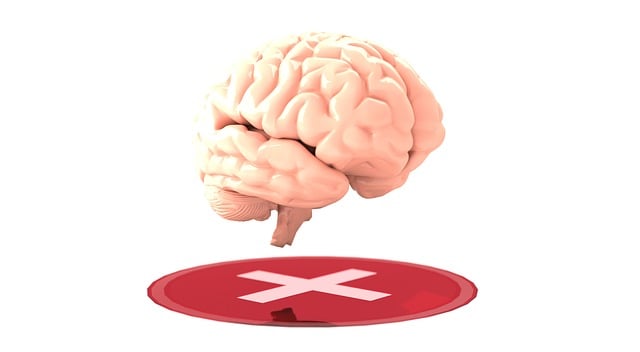Louisville's diverse cultural landscape presents both challenges and opportunities in mental healthcare, particularly in bariatric evaluations and therapy. Therapists must embrace cultural sensitivity, navigating differing beliefs and communication styles to offer effective, tailored treatment. By incorporating culturally responsive practices, the city aims to improve accessibility, foster trust, and enhance outcomes for all residents seeking mental health support, positioning Louisville as a leader in inclusive healthcare.
In the diverse community of Louisville, cultural sensitivity in mental healthcare is not just a best practice—it’s essential. This article explores the critical role of cultural competency in enhancing patient outcomes and building trust within a bariatric evaluations and therapy context. We delve into how understanding cultural diversity shapes effective treatment, offering practical strategies for therapists to create inclusive sessions. Additionally, we discuss steps towards building a more culturally sensitive mental healthcare system in Louisville and beyond.
- Understanding Cultural Diversity in Mental Health Care: A Louisville Perspective
- The Impact of Cultural Sensitivity on Patient Outcomes and Trust
- Practical Strategies for Culturally Competent Therapy Sessions
- Building Inclusive Mental Healthcare Practices in Louisville and Beyond
Understanding Cultural Diversity in Mental Health Care: A Louisville Perspective

In Louisville, the landscape of mental healthcare reflects a vibrant tapestry woven with threads from diverse cultural backgrounds. This city, known for its rich heritage and inclusive communities, presents unique challenges and opportunities in providing mental health services. Cultural sensitivity is paramount here, as therapists and healthcare providers must navigate the intricate labyrinthine of different beliefs, values, and communication styles to offer effective treatment. Understanding that every client’s experience is shaped by their cultural context—from ethnic traditions to socioeconomic factors—is crucial for delivering quality care.
Louisville’s diverse population, with its various ethnic groups and immigration stories, necessitates a nuanced approach to mental health support. Bariatric evaluations, for instance, should consider cultural perspectives on body image and dietary practices. Promoting emotional well-being involves employing techniques that resonate with different communities, ensuring that burnout prevention strategies for healthcare providers are culturally responsive. By adopting these approaches, Louisville’s mental healthcare system can foster a sense of belonging and accessibility, ultimately improving outcomes for all residents.
The Impact of Cultural Sensitivity on Patient Outcomes and Trust

Cultural sensitivity is a cornerstone in mental healthcare practice that significantly impacts patient outcomes and builds trust. In Louisville, where diverse communities seek bariatric evaluations and therapy, understanding cultural nuances is vital for effective treatment. Mental health professionals who embrace cultural sensitivity create safe spaces for patients to openly discuss their experiences and challenges, fostering honest communication. This approach ensures that interventions are tailored to individual needs, addressing not just the presenting issue but also the unique cultural context in which the patient lives.
By integrating cultural sensitivity into their practice, Louisville’s mental health professionals can improve crisis intervention guidance and risk management planning. They become better equipped to recognize and navigate potential cultural barriers, thereby enhancing patient safety and well-being. Moreover, this sensitivity boosts confidence among patients from diverse backgrounds, encouraging them to seek help without hesitation. Effective cultural sensitivity practices are not just about providing equitable care; they are a powerful tool for building trust, ensuring satisfaction, and ultimately, achieving positive outcomes in mental healthcare.
Practical Strategies for Culturally Competent Therapy Sessions

In fostering culturally competent therapy sessions, Louisville Bariatric Evaluations Therapy professionals can employ practical strategies to create a safe and supportive environment for diverse clients. Understanding cultural nuances is key; therapists should educate themselves on their clients’ backgrounds, beliefs, and values, especially when working with individuals from different ethnic, racial, or socioeconomic groups. This knowledge enables therapists to tailor their approach, ensuring that therapy aligns with the client’s cultural context.
One effective strategy is incorporating culturally specific techniques and interventions. For example, incorporating traditional healing practices, such as mindfulness and meditation, alongside Western therapeutic methods can enhance engagement. Additionally, providing resources and guidance on stress reduction methods, emotional healing processes, and even Mental Wellness Journaling Exercises tailored to diverse populations can empower clients to take an active role in their therapy. These inclusive practices contribute to building trust and fostering meaningful therapeutic relationships, ultimately enhancing the overall effectiveness of Louisville Bariatric Evaluations Therapy.
Building Inclusive Mental Healthcare Practices in Louisville and Beyond

In Louisville and beyond, there’s a growing awareness of the need for inclusive mental healthcare practices that cater to the diverse cultural needs of the community. This shift is particularly evident in areas like bariatric evaluations and therapy, where addressing mental wellness requires a nuanced approach. By integrating cultural sensitivity, mental health professionals can foster inner strength development in individuals from various backgrounds.
This involves not just understanding but also embracing the unique perspectives, beliefs, and practices that shape an individual’s mental health journey. It necessitates a thorough Mental Health Policy Analysis and Advocacy to ensure equitable access to care for all. Through these efforts, Louisville is poised to become a model for inclusive mental healthcare, where every individual feels seen, heard, and supported on their path to holistic well-being.
In the context of Louisville’s diverse community, cultural sensitivity in mental healthcare is not just a best practice but an essential component for improving patient outcomes and fostering trust. As highlighted through local perspectives on mental health care and practical strategies for therapists, understanding and embracing cultural diversity can revolutionize bariatric evaluations and therapy sessions. By implementing inclusive practices, mental healthcare professionals in Louisville and beyond can better serve a wide range of patients, ensuring that everyone receives the supportive and culturally competent care they deserve.











